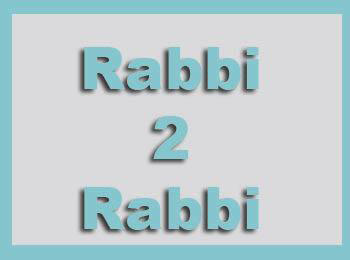We pray for a utopian period led by a messianic figure, but Judaism has survived and thrived by expressing itself in multiple forms, without a single leader or uniform approach
RABBI N. DANIEL KOROBKIN
BETH AVRAHAM YOSEPH CONGREGATION, TORONTO
RABBI LISA GRUSHCOW
TEMPLE EMANU-EL-BETH SHOLOM, MONTREAL
Rabbi Korobkin: With all the hype and media attention around Pope Francis’ recent visit to the United States, I find myself musing about the state of our people, popeless as we are.
We don’t even have a chief rabbi – Israel must have two chief rabbis, one for Sephardim and the other for Ashkenazim. And we certainly don’t believe in rabbinical infallibility (just ask my congregants). Still, it’s interesting to ponder: if there was a Jewish “pope” in some alternate reality, what would his message be? Would he be liberal or conservative? What colour would his (or her) yarmulke be?
Is there a message you think is universal enough for all Jews that the “Jewish pope” could successfully convey to the world about Judaism and the Jewish People?
Rabbi Grushcow: What a question!
I agree with you that our people certainly are not looking to grant anyone infallibility, nor should they. After all, even the high priest had to confess his sins on Yom Kippur, and rabbis, thankfully, are not even meant to be priests.
But when I think of moral leadership, I think of a rabbi like Sidney Shoham, may his memory be for blessing. He was a giant in the Montreal Jewish community for more than 50 years. He led by example. He was a superb pastoral rabbi, there for people in times of joy and sadness. He was a gifted teacher. And above all, he was a mensch, permeated by a love of other human beings and klal Yisrael. He beamed kindness. And, to me, a relative rabbinic newcomer and a female liberal rabbi, he, an Orthodox rabbi, extended warmth and collegiality. That’s the kind of leadership I would want in a Jewish pope.
But I believe anyone worth the title wouldn’t want it. And I also believe that our religion has survived and thrived by expressing itself in multiple forms, resistant to a single leader or a uniform approach. None of us know, in the long term, which way is the best way
forward, which rabbi will be quoted generations from now and who will be forgotten.
And if we couldn’t even agree on a gender, far be it from us to reach consensus on a message – or even the colour of a kippah.
Rabbi Korobkin: And yet, the traditional liturgy is replete with prayers for a future utopian period led by a messianic figure. Such a person is supposed to unite our people at the end of days, so that we truly feel like one nation instead of disparate tribes.
I agree that such a person will need to regard ahavat Yisrael, a genuine love for every single Jew, as the highest value, as well as compassion for every living creature. This Messiah is also supposed to lovingly welcome every human being to worship God and live a righteous life.
I think the person who came closest to being a Messiah for our generation was the Lubavitcher Rebbe, and I’m sad that the void since his passing hasn’t been filled with another leader possessing that same degree of vision, charisma and love.
We need to be more proactive in creating our future leaders and imbuing them with this kind of ahavat Yisrael. It should be the most important value inculcated into our children from a very early age.
Rabbi Grushcow: In the Reform liturgy, we have long since replaced the prayers for a single, human messiah with our hopes for a messianic age. As my mentor, Rabbi Robert Levine, titled his book: “There’s no Messiah, and you’re it.” Each of us bears responsibility for getting closer to that messianic age, instead of waiting for someone else to come and save us.
Do we need to teach ahavat Yisrael? One hundred per cent. But for that love to be truly inclusive, it would have to recognize that the norm – and even the ideal – of our broader community is not exclusively Orthodox. It would have to recognize, and honour, that there are Jews making Jewish homes with non-Jews. It would give kavod, respect, to religious leaders across the denominational spectrum. It would celebrate different ways of being Jewish.
I’m not holding my breath. But I believe that another one of the most important Jewish values is hope.
Perhaps our dialogue helps bring us one step closer.
